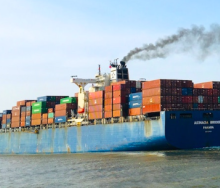While Covid-19 may have deepened pre-existing trade frictions within the continent, it also offers important growth opportunities and great stories of innovation - and highlights the importance of protecting Africa’s place in local value chains.
That’s the view of Anabel Gonzalez, senior fellow, Peterson Institute for International Economics, who believes that small-scale traders should be placed at the heart of the effort.
Speaking at a virtual webinar last week, organised by the African Development Bank AfDB) and Korea Customs Service (KCS), she urged governments to strengthen national agencies to provide support to small traders.
“AfCFTA creates a new trade and integration reality…integrating unequal partners across the continent,” said Trudi Hartzenberg, executive director of the Trade Law Center (Tralac). Trade facilitation enjoyed specific focus within the AfCFTA, with digital, e-payments, and e-commerce particularly important, she added, citing a 2020 WTO report that emphasised education and healthcare as fundamental to industrialisation.
From the outset, the AfDB had lent strong support to the AfCFTA, financing the set-up of its secretariat as well as supporting member countries with technical assistance to comply with a range of AfCFTA regulations, said the bank’s Solomon Quaynor
He did however warn that post-crisis recovery efforts were likely to be slow. “The AfCFTA will not, in one dramatic swoop, alter existing commercial and economic realities on a vast scale. However, through strategic measures and the right investments, policy frameworks and political backing, intra-African trade will be enhanced.”












